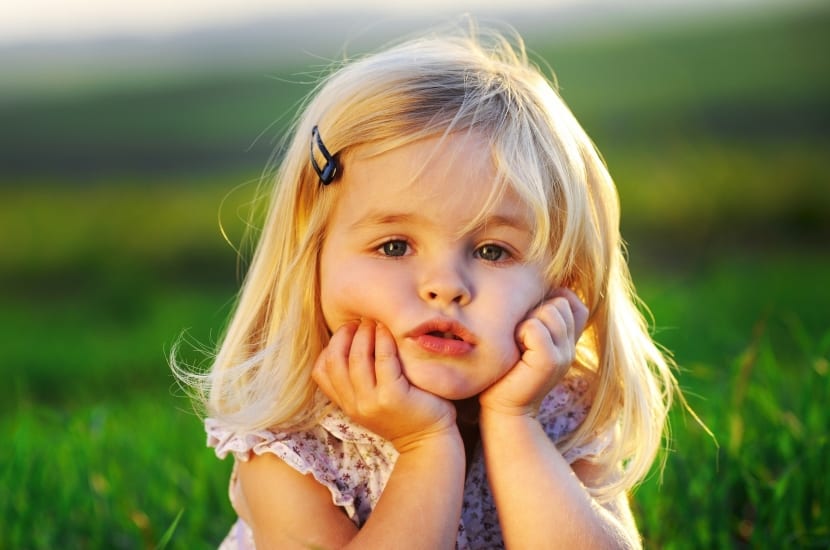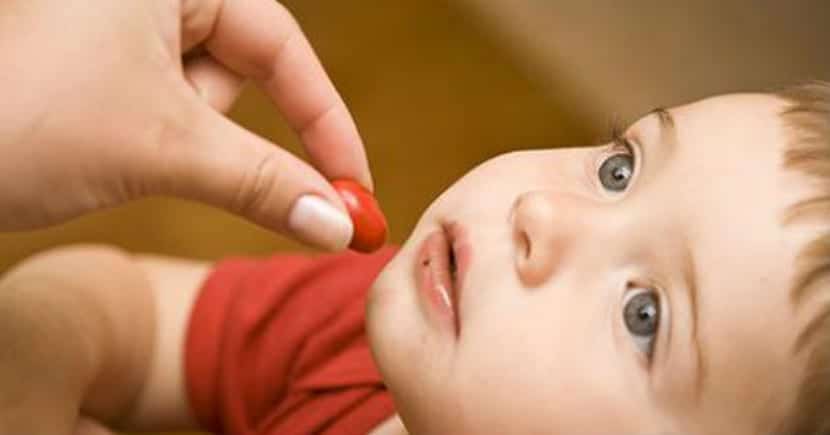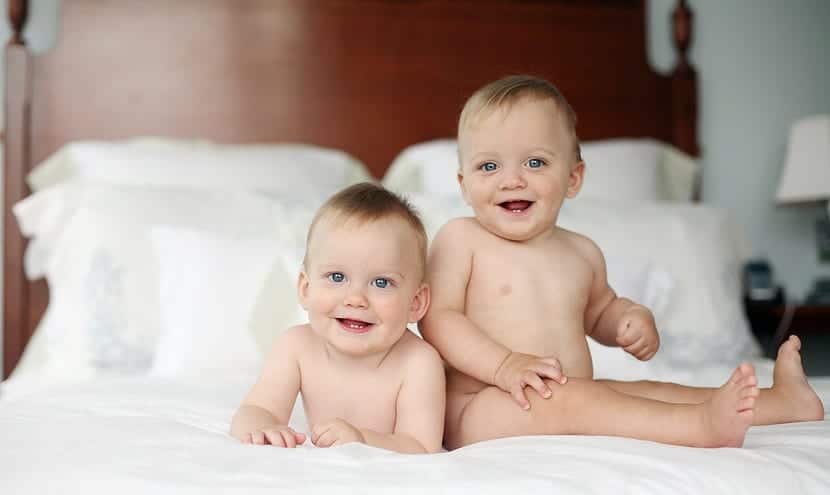
The personality of children has always been a subject of great interest for psychologists, pedagogues, doctors and psychiatrists. Now, the one who is most intrigued by this dimension is undoubtedly the families, the parents ... Will the girl resemble her father? Has he inherited the rebellious character of his grandmother?
The first thing we must know is that personality is not something specific, it is not something that appears overnight in us. Nor should we make the mistake of thinking that a baby "lacks personality." There are genetic, biological, chemical and even environmental factors that will determine already in the first months that we intuit certain traits that can give us good clues about the genius of our children. In "Madres Hoy» we explain it to you.
Factors that can determine the personality of a child
As we have pointed out before, there are aspects that are completely beyond our control, and that will largely determine whether a person develops one type of personality and not another.
- There is a genetic component.
- Nor can we rule out biochemical elements. An example of this would be a brain where the dopamine neurotransmitter is overexcited: in this case, we develop a search-oriented behavior, continuous reward ... They would be clearly extroverted traits.
- Another aspect to keep in mind is that personality is a psychological construct that is constituted day by day through experiences, and the evaluations that we make of them.
Based on these principles that, as you can guess, no one can control, guide or determine (hence the magic of human individuality, and the need to consider each child as unique and special), it is worth considering a series of pillars that can help us to establish a more confident and mature personality in our children.
- The first bond that the child will develop with us is attachment. It is an emotional bond that provides security for our children, and that helps them develop that first social bond with their family.
- It is necessary that the attachment be healthy, that it offers shelter, security, confidence, while a progress push towards autonomy.
- That is, there are parents who develop either a "detachment" and an emotional coldness that can largely determine the personality of a child, or on the other hand, There is the risk of overdoing ourselves and creating "bubble children", excessively dependent children.
- Another aspect to take into account is the way we socialize our children, so to speak: "the way we introduce them to the world." Here, once again, it is important to always offer strategies for the child to be autonomous, so that they find happiness and comfort by opening up to others, playing, exploring and discovering.
- We must also develop a democratic educational style, avoiding authoritarianism. It is something essential that can help our children a lot tomorrow.
Our children's personality is unique: get to know it as soon as possible

Many parents mistakenly believe that a child's personality settles in adolescence. And it is not true. The character of a child is seen and felt every day since he came into the worldMoreover, babies of only a few months already differ from each other, there are those who demand more attention, those who cry more and less, those who pay more attention and those who react worse to new stimuli.
All of these are clues, bases that will later be built with new aspects thanks to experience and interaction with the near world that surrounds them. And something we must understand parents is that we cannot change their character, a child will never be the reflection of his parents.
Each of our children is unique and special, and our job is to understand, guide and guide them always in happiness, openness so that tomorrow, they will be independent adults capable of achieving the goals they set for themselves.
Therefore, from very early on we can intuit his personality through these aspects.
Activity level
This is something that we easily perceive already in the first months. There are children that it is almost impossible for us to get them out of the house. You carry them in your arms or in the cart and they never stop moving, they "need space" for mobility, they hardly stop still and they are always attracting attention.
On the other hand, others fall asleep easily, and are very adaptable and calm when taking them out of the house. However, Let's not think that because a child is very moved he can bring us problems tomorrow, sometimes the level of activity is related to curiosity. It doesn't have to be something that worries us.

Regularity
Very regular children make many things easier for parents: they are predictable, we can adapt to their habits and organize things like outings, trips ... We are clear that they will eat at their hours, that they sleep well their naps ...
On the other hand, we have those other babies who take a long time to fall asleep, who do not want to eat when it is their turn and who, for example, do not just "adapt their biological rhythms", that is, it is very difficult for you to remove their diapers, control their urine ... etc.
With this, you can already intuit who will need more attention and energy from you.
Reaction to new stimuli
Babies generally do not do well with unexpected stimuli and changes. They prefer routine and predictability. However, their environment is not going to be stable throughout their lives, and it is common for them to react in a very varied way to new factors such as guests, people who take them, music, sounds, lights, new pets, excursions ...
There are more complicated children who receive these new situations very badly, and something that is essential on our part is to warn them as soon as possible to better manage these situations by providing calm and security. Something basic so that tomorrow they adapt well to the day to day and their social development.
Reaction intensity
How do you react to things? Babies can react to new stimuli by screaming, crying or quiet curiosity. All this says a lot about them, there are some who get angry, others are timidly silent.
Regardless of their reactions, you should always help them express their emotions.

How long is your level of care?
All of this will certainly vary over time as they mature, but there are babies who pay very little attention to stimuli, others on the other hand persist in that new object, figure, toy ...
It is worth talking to children about these objects to stimulate their interest, to focus their attention and not to scatter. Remember that it is worth giving them only one toy than many at a time.
Sensory sensitivity
There are children more sensitive than others to tastes, lights, textures, sounds and temperatures. Sometimes that sensory sensitivity has a lot to do with their character, with their way of feeling and interacting with the world.
Always pay attention to your child's level of sensitivity to be able to manage all the stimuli with which they interact every day.

What mood predominates in your baby?
There are babies who laugh at nothing, others who react with tantrums, others who are more shy ... Believe it or not, these are already clear clues about their personality, something that will make us understand them better and help them manage their emotions more optimally. Day day.
If your baby is crying and reacts by pulling your hair or yelling at what he does not want or does not like, it is necessary to control and channel these reactions. On the contrary, If your child's mood is somewhat off, encourage him to show, to interact, to touch, to feel ... Make physical contact the vehicle of the emotion of laughter and surprise.
Cultivate your daily happiness, and discover how your personality develops to understand and help you when you need it.